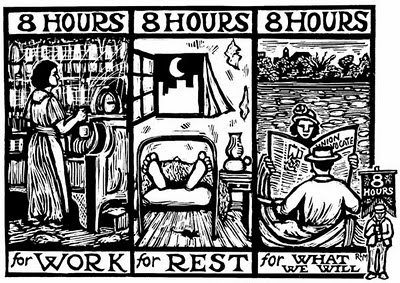On the basis of two studies that link bee population decline to a pesticide called neonicotinoid, public attention has turned to Bayer, the main company that makes and sells it. As a result, Bayer has had to put a motion on its Annual General Meeting agenda, that calls for the company to stop producing neonicotinoid.
Continue reading
Author Archives: jenny
Bangladesh – the great climate change exodus
Thousands of rural families in Bangladesh are being pushed into Dhaka and other crowded cities as their land and houses have been washed away, the New Internationalist reports. But by 2070, Dhaka itself will be one of the most climate-stressed cities on earth, according to the UN. Heat stress, river and coastal floods are likely if climate change continues unabated.
Bangladesh is calling for a new UN refugee convention to recognise climate refugees. In the meantime, Bangladeshis attempting to flee across the border to India face a fence-building programme along the border and gun-toting border guards who have shot a estimated 10,000 people trying to cross the border without papers in the last 10 years.
Massachusetts disqualifies biomass power from renewable subsidies
Biomass power is far from green.
New biomass regulations from the Massachusetts Department of Energy Resources disqualify stand-alone biomass power facilities from receiving the US equivalent of the subsidies called Renewable Obligation Certificates (ROCs) that UK biomass power plants are eligible for. Combined heat and power biomass facilities with an efficiency of at least 50 per cent are still eligible for the subsidies.
The new Massachusetts regulations come in response to widespread public opposition to biomass incinerators, and to a study that showed that biomass power generation is not carbon neutral.
Continue reading
MayDay
Lancashire Cohousing Brunch & site tour
For anyone interested in Cohousing:
Lancashire Cohousing Brunch and site tour: Sunday 27 May 2012 (4th Sunday every month, except April)
Monthly opportunity for newcomers to meet with members and tour the site (though with restricted access as building is now underway).
- 11am Brunch at Whale Tail Café, 78a Penny Street, Lancaster, LA1 1XN
- 1.30pm site tour (except April, see above), Forge Bank, Halton (map), by request . Meet at the Mill building – follow the Whittle’s signs (our building contractor) to get to the site
Farmers demand World Bank stops funding land grabs
An alliance of family farmers, together withs groups for the reform of the World Bank, are demanding that the World Bank stops funding land grabs and calling for states to comply with their extraterritorial human rights obligations.
Continue reading
Global investment must obey national laws
Following on from yesterday’s post about the call from accountancy firm KPMG for companies to pay for the environmental damage their operations cause, here is a video from the Network for Justice in Global Investment.
Bringing the World Bank’s International Centre for the Settlement of Investment Disputes out of the shadows
The nine-minute videotape’s about resistance across many South American countries to the World Bank’s International Centre for the Settlement of Investment Disputes (ICSID). Transnational corporations use this little-known organisation to demand compensation from governments that have prevented them from operating in their countries, because of the environmental damage they would cause. ICSID basically provides a way for transnational corporations to override democratic decisions and economic sovereignty, overpowering governments in the pursuit of profits above all other considerations.
Continue reading
Immersive journalism
I came across this via a post called Making News Useful, about how journalism’s changing as a result of social media and open data. The basic idea is that the role of journalism now can involve:
- building software around data sets that come from open data or from journalists’ investigation, so that readers can figure out how to use the data for themselves rather than just reading the interpretations that journalists put on it
- forms of storytelling that are far more immersive that traditional reporting – for instance using Second Life to report on Guantanamo, so that readers/viewers get a greater sense of what it’s like to be there, or for rival gangs to take each other through their neighbourhoods with the aim of defusing rivalry and creating empathy
It’ll be interesting to see whether any of these new journalism practices shape the new version of the Halifax Courier, which is to change to a weekly print paper and constantly updated digital news. This is only one of a number of Johnston Press-owned local and regional papers across the country that are suffering staff cuts and undergoing significant changes/updates.
Ashley Highfield, Johnston Press Chief Executive, says that the plan is to create “a series of themed digital destinations”, inspired by the website Mumsnet. Changes to the Halifax Courier are part of wider Johnston Press plans for new daily iPad apps for all the company’s bigger titles, revamped websites with greater use of social media, and new mobile sites for all paid-for papers.
The changes are taking place in the context of cost-cutting closures to weekly local papers’ offices and compulsory redundancies for numerous staff – reporters photographers and editors. Johnston Press took on a lot of debt a few years ago and although it turns a profit it has been struggling to repay its debts and has come under pressure from banks.
Local papers across the country are suffering staff cuts. In Bristol, the local National Union of Journalists Branch has held a demonstration to protest against cuts to the Northcliffe-owned Bristol Evening Post.
New report says companies must pay for their environmental impacts
The Stern Report on Climate Change, which formed the basis for the UK’s 2008 Climate Change Act, says that climate change is caused by companies’ avoiding paying for the costs of the damage their greenhouse gas pollution causes. This is called “externalising” costs – putting them outside the company, so that something or someone else – the environment, customers, the public or employees – have to pay for them.
A new report, Expect the Unexpected, by the accountancy firm KPMG says that companies are externalising all kinds of environmental costs, not just the costs of climate change caused by their greenhouse gas emissions. The environmental impacts of industries like farming and food, beverages, mining and so on are worsening, but companies are avoiding paying for the damage they cause.
Continue reading
Environment
Welcome to Environment news and information.
In this section, you can find out about a range of environment news and information, and post your own as well.
The Environment section includes:
Upper Calder Valley environmental groups, organisations and businesses – Who’s who?
- Local environment groups news
- Incredible Edible Mytholm
- Ban the Burn news
- Blackshaw Environmental Action Team
- Hebden Royd Town Council news
Calderdale Energy Future Panel & Green Deal (this section will soon migrate to the Energy section – I’m in the process of revising the site plan, so that readers can find things more easily )
- Calderdale Energy Future – news
- Green Deal – a public-private partnership too far
- Calderdale’s Energy Future – not looking great
- Environmental & social justice news
- Public right to environmental justice
- Environmental information regulations requests
Changing More Than Lightbulbs by Jenny Shepherd is licensed under a Creative Commons Attribution-NonCommercial-ShareAlike 3.0 Unported License.


